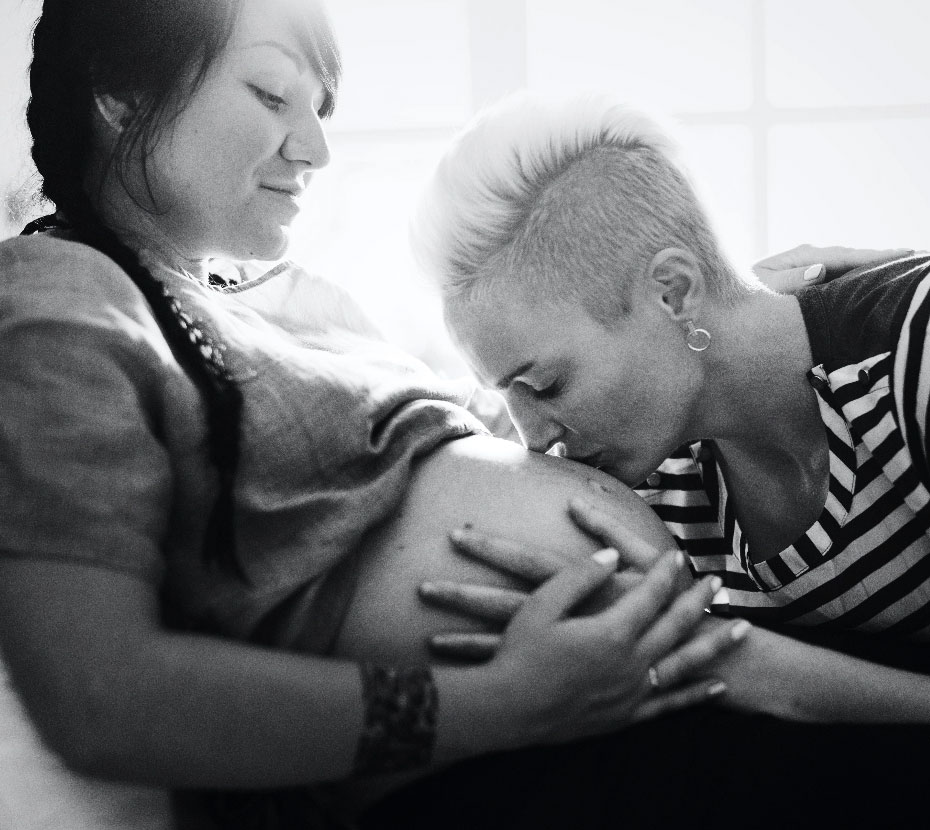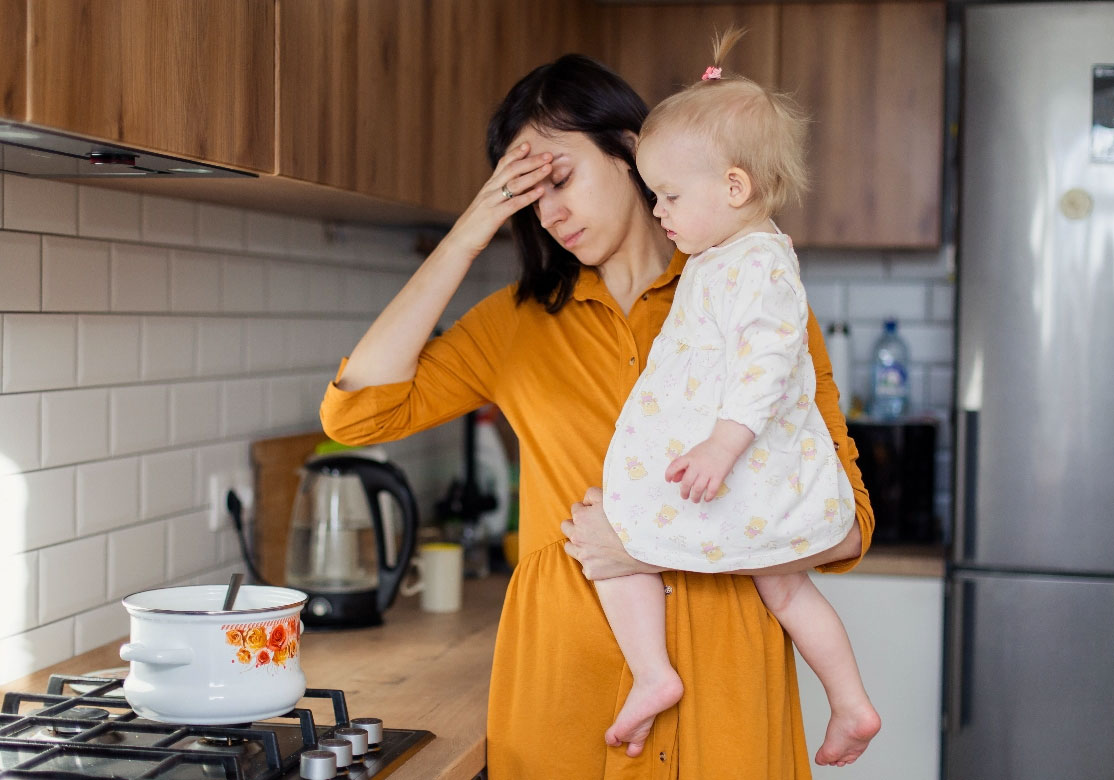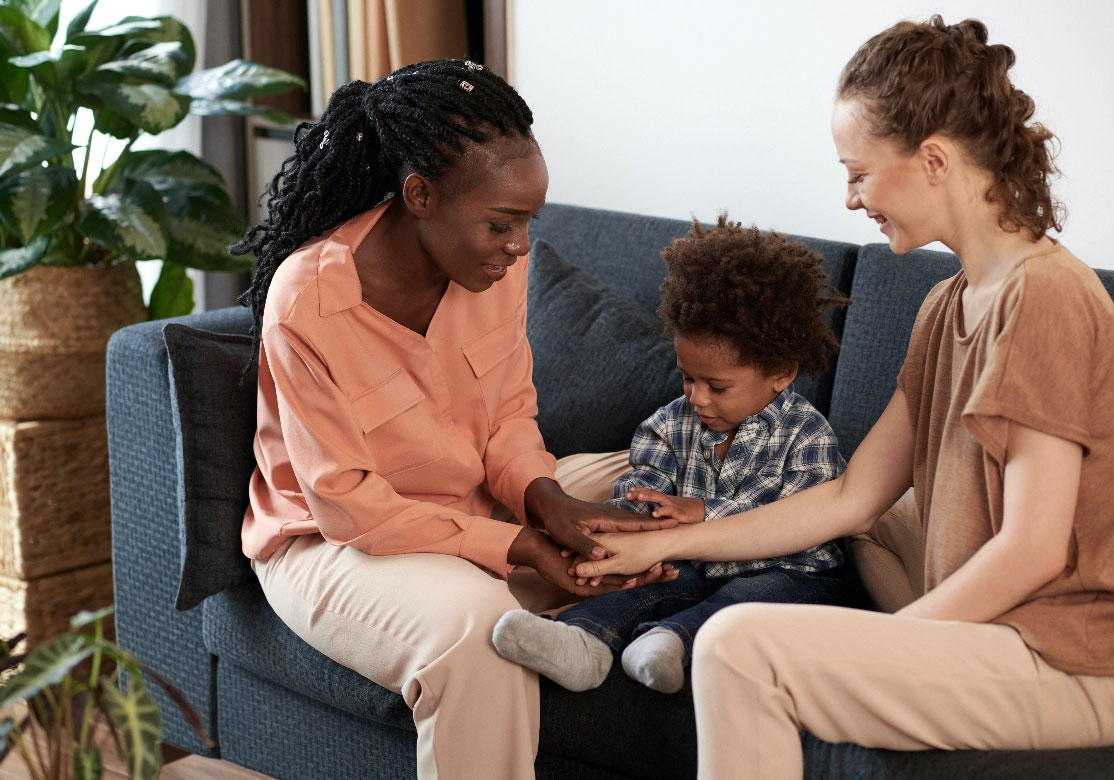
As a partner, I had no idea that having a second child would change our lives so much. We had spent a lot of time thinking about it and talking about how it would affect us. It wasn’t like we weren’t ready to become parents again when our daughter was born.
Until now, I hadn’t had any personal experience with depression, but I knew something was wrong after my wife gave birth the second time. It was nothing like we thought it would be. Our lives totally changed. She did not want me to touch her and it was really hard to talk about it. The demands of the new baby, the broken sleep, the increased load of household chores added to our stress.
It was hard for me to understand how my wife could be depressed when we had this beautiful new baby. I just wanted her to get over it and be herself again. We were arguing a lot and we never used to act like that. Our lives were in chaos. I was very angry. I just wanted her to snap out of it.


“It was super difficult for us both because we had just come to Canada a year before my wife gave birth. We had no network, no friends. We were at the mercy of all this conflicting advice. It was very confusing.”
L.B., Richmond
I worried about how my wife was coping looking after our children. I knew she didn’t want me to leave her alone with the baby. I didn’t know what to do. I felt pulled in so many directions. How could I be at home and support my partner and at the same time meet the demands at work?
Finally, I started confiding in a colleague. He told me his wife also had postpartum depression after the birth of their son. He gave me some ideas on what I can say and do to help my wife. He also suggested I go to a Pacific Post Partum Support Society Partner Information Session. He said it had really helped him learn more about depression and also ways he could help his wife.
I wasn’t crazy about going to a group information session but I decided if it might help my wife, our children, and our relationship, that it was worth a try. I went to the 2-hour session. There were about 10 or 12 new fathers in the group. I was surprised how much we talked and how much we had in common. We shared our stories, our thoughts and our ideas. The group leader helped us understand what our partners were going through and ways we could help.
I also learned at the Partner Information Session that partners may also experience the baby blues or postpartum depression. They may have the same feelings of emptiness, sadness, and anxiety after the birth of a child that a mother has and, if untreated, these feelings may continue for several months. Many of the stressors and overwhelming emotions that parenting brings to mothers are also felt by their partners. Many do not recognize these feelings as being part of a depression. Also they don’t know how important getting help is. Partners deserve help too. It takes two healthy parents to raise and support a child.

The Partner Information Session was a turning point for me. I realized that in order to help my wife get well, I needed to support her and understand what she was going through. She was so hard on herself. I started by making sure I told her how much I loved her for trying so hard. I also got our family involved and they started helping out with a list of practical things they could do.
I made some small changes that seemed to help. I talked to my boss and arranged to come in a little later on days when I didn’t have a meeting first thing. That way I could help my wife by getting up a few nights a week with the baby and letting her sleep. I also did this on weekends when I could. I took on a lot more when it came to looking after our older son. I knew he needed attention, and I tried to help him understand. I tried to help more with housework and not criticize her even though I’d feel myself losing patience too. Dishes, laundry, diapers… it was overwhelming. We didn’t have that much extra money, but we managed to hire a housekeeper once a week and that really helped. Instead of complaining, I tried to notice the things my wife had managed to get done.
Sometimes my wife just needed a break so when our son was tucked in, I’d put the baby in the stroller and go out for a little walk before bedtime. I needed the space too. It was good for all of us.
Little by little, things started to improve. My wife still had difficult days but not all the time. We even started going out once in a while when we weren’t too tired. We started to laugh again and cuddle and talk about a weekend away together! Our future was looking a little brighter.
Pacific Post Partum Support Society is located on the traditional, ancestral, unceded, and occupied territories of the xʷməθkʷiy̓əm (Musqueam), Sḵwx̱wú7mesh (Squamish), səlilwətaʔɬ (Tsleil-Waututh), and Stó:lō First Nations.